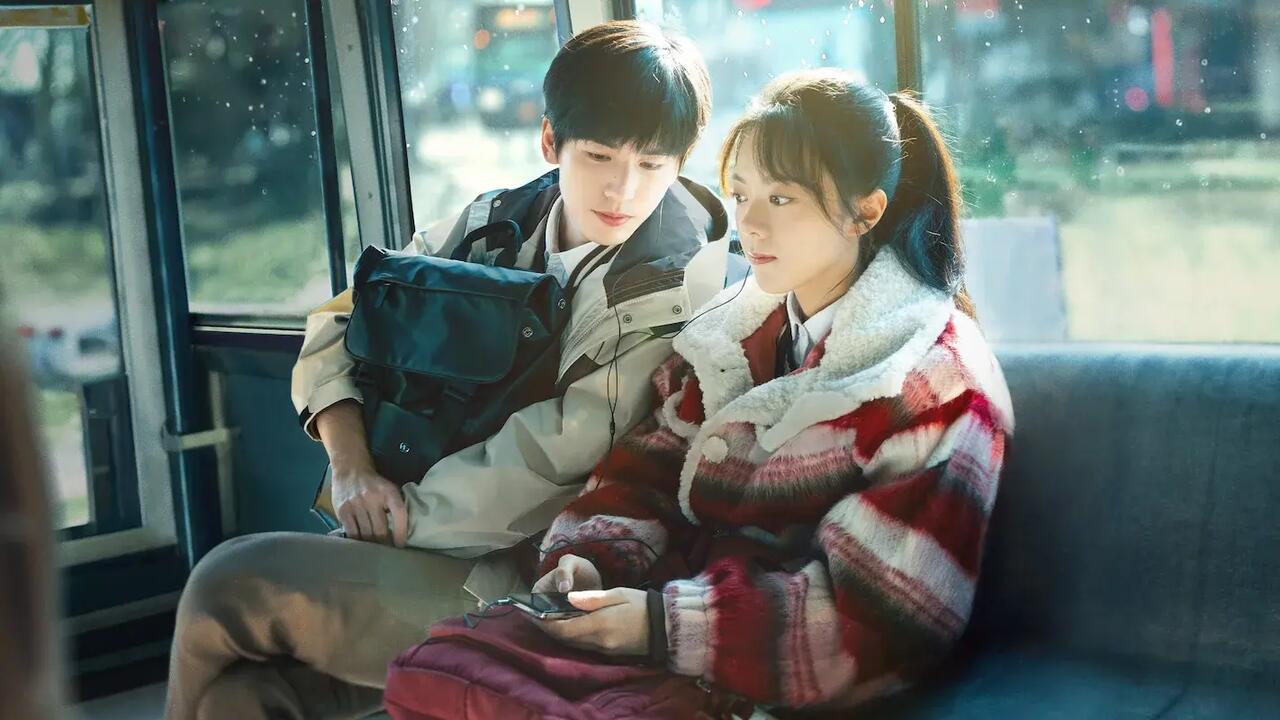
When the opening frames roll, Our Generation immediately threads a warm ribbon of nostalgia through your brain, think sunlit trails, reluctant smiles, the clumsy poetry of first friendship. It’s 1990-something, and Lin Qi Le, nicknamed Cherry blossoms in her rural home, is surrounded by playful siblings, affectionate neighbors, and a sweeping soundtrack of ringing school bells and distant cicadas. Then Jiang Qiao Xi arrives moody, brilliant, and slightly untethered, but Cherry isn’t deterred. She tugs him into the safe fold of her world. In the first two episodes, they chase fireflies, argue over homework, and build treehouses, each moment as gentle as a breeze replaying a half-forgotten memory.
There’s real charm in the contrast: Cherry’s earnest optimism bouncing off Qiao Xi’s quiet reserve. Their first true conversation about a broken bike chain feels less like a plot and more like life happening. Director and cinematographer know this: they take their time lingering on a goofy grin or a shared secret glance. There are no flashy cuts, no cringey pop quotes, just ordinary moments wrapped in a soft-focus glow.
Zhao Jinmai’s Cherry is energetic yet grounded; she’s not a caricature of perky, but rather a kid full of light. Zhang Linghe’s Qiao Xi is equally grounded, delivering restrained curiosity and cautious thawing without a hint of teenage melodrama. Their chemistry is subtle, a shared look, a reluctant laugh, and it feels entirely earned. The rural setting is treated like a character in itself: muddy roads, bamboo groves, choreographed livestock, and late-night bonfires that smell of smoke and freedom.
But let’s not pretend the show is flawless. The pacing is leisurely maybe too much so. At nearly 50 minutes per episode, you begin to notice extended moments that drift toward filler: Cherry teaching Qiao Xi to climb a tree, a slow pan over quilted laundry, a neighbor’s dog wandering into frame. They’re beautiful in isolation, but push too long, and they lull. By the halfway mark of episode two, I found myself tapping my finger, wondering if we’d hit peak ambiance.
The script often feels strained under the weight of its own aspirations; entire subplots seem clipped, dialogue feels underdeveloped, and occasional leaps from one scene to another leave you wishing for smoother bridges. Some character arcs show promise—Cherry’s parents, warm and a touch worn—though we only glimpse them before the focus returns to our leads. By episode two, I wanted more depth, more subtle conflict, more signals of what’s to come beyond the pastoral veil.
Still, I can’t argue with the show’s strengths. The screenplay—adapted from Yun Zhu’s web novel—was clearly crafted to savor the small enchantments of childhood. Lines dance lightly: “Chase the cicada until it stops singing” feels more like poetry than script. When Cherry finally breaks Qiao Xi’s stoic armor—by offering him her treasured tobacco tin as a lucky charm—it’s a moment that lands with disarming sincerity. It’s not cinematic fireworks but something quieter: the soft crack of someone letting another in.
An episode ending on a sweet promise suddenly jolts into a steely silence or a misplaced dramatic sting, as if terrified the sweetness alone won’t hold your interest. The show looks gorgeous, yes but lavish visuals occasionally feel like they’re patching over emotional gaps. There were stretches where I thought: “Cute—but is it stuck in ‘cute’ mode?”
Dialogue is similarly up and down. When the kids riff about math problems or share lunches, it dances; when adults talk, it becomes functional and sometimes stiff. Maybe that’s an artifact of condensed episodes, though it’s more noticeable in scenes with secondary characters. I wanted richer texture: an older cousin with a secret, a neighbor with a misdemeanor, something to flavor the edges of this bubble world.
Yet even with its flaws, there’s plenty to love here. The montage of Cherry teaching Qiao Xi how to ride a bike, he wobbling, she cheering it’s a moment that warms your chest. The sudden laughter when Qiao Xi cracks a rare joke catches you off guard, and you smile through the screen. The music swells just enough but never intrudes, kept in service to the story rather than overpowering it.
By the end of episode two, the groundwork is laid: childhood friendship as sanctuary, budding emotions, and a slight shift in perspective. We see Qiao Xi’s conflicted expression when he has to go home to a wealthier, emotionally distant family where expectations loom. We feel Cherry’s worry when a stray dog spooks him. These small signals hint at deeper currents—the conflict between two worlds, between innocence and the approaching edge of adolescence.
From a critical standpoint, Our Generation is a sweet slice of coming‑of‑age, dipped in nostalgia and shot with care. It earns its warmth through performance and detail. But it also limps a little in structure and momentum. The first two episodes are inviting, even comforting, but risk drifting into amiable scenery without enough narrative pull. It needs a tighter script and more emotional variety to carry the promise it sets up.
Still, that core relationship, the contrast between Cherry’s boundless hope and Qiao Xi’s cautious brilliance, is engaging enough that I’m curious where it’ll go. Will they stay close through the awkward years? Will the first kiss happen under star‑dusted skies? Will family secrets snuff out innocence?
I’m inclined to applaud the show’s visual tone and casting choices. But as a viewer, I’m hunting for more stakes, more editorial synergy, more compelling friction beyond the visuals. So I’m in just with a performance in progress. There's enough potential to stick with it, though I hope forthcoming episodes tighten the focus, build stakes, and give some of the supporting cast depth.
Final Score- [6/10]
Reviewed by - Anjali Sharma
Follow @AnjaliS54769166 on Twitter
Publisher at Midgard Times
Get all latest content delivered to your email a few times a month.
Bringing Pop Culture News from Every Realm, Get All the Latest Movie, TV News, Reviews & Trailers
Got Any questions? Drop an email to [email protected]